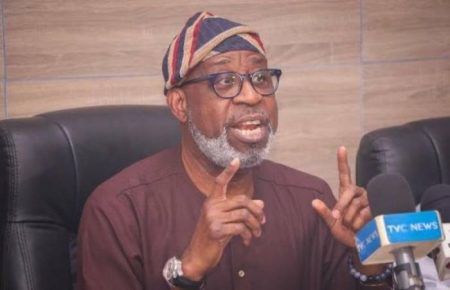03 November 2015, Abuja – Stakeholders have constantly harped on the huge minerals endowment and its potential for the Nigerian economy, even as successive administrations have emphasized on the need for diversification of the economy from just petroleum to other sectors including solid minerals.

But these administrations have done little or nothing to actualise this objective, just as the President Mohammadu Buhari’s government is yet to beam its search light on the solid minerals sector.
Buhari had noted that Nigeria cannot afford to hold back on such a strategic sector as the mines and steel, which he said has the capacity to create the much needed jobs for the teaming populace and promote economic growth.
Recall that when the Permanent Secretary, Ministry of Solid Minerals, Mr. Baba Umar Farouk, briefed the President on the activities going on in the ministry and the sector, Buhari had said: “This is one of the most demoralising briefs I have received.
“The biggest threat to this country, besides the Boko Haram, is unemployment, and the mining sector is key to employment creation. We cannot hold back on such a strategic industry that can give us the much needed jobs and promote economic growth,” the President said.
He, therefore, decried the activities of illegal mining and other sharp practices in the sector, which he said have inhibited the growth of the country’s solid minerals sector.
Business environment
Aside from the “harsh” economic environment, many investors are sceptical about doing business in Nigeria’s solid minerals sector due to lack of data. The daunting challenge that successful administrations have failed to tackle is the provision of adequate and reliable geosciences information that will show investors the quantum, quality, and location of solid minerals in different parts of the country.
This brings to the fore what the government is doing to reposition and reactivate vital agencies and parastatals that are saddled with the responsibility to provide such important information for investors. The lack of vital geosciences information has made foreign investors to see the government as being unserious and lacked the political will to develop the solid minerals sector.
Operators often complained about the lack of comprehensive geosciences data from the government, saying this is frustrating exploration activities in the sector. Geosciences data serve as a compass to both the local and foreign investors in determining the nature of investment to deploy in the sector.
Against this backdrop, the President, Nigerian Mining and Geosciences Society, NMGS, Prof Olugbenga Okunola, noted that foreign investors will continue to shun Nigeria’s mining sector in view of the absence of a comprehensive and reliable geosciences data for them to make informed decisions.
Okunlola, in a television monitored programme, cautioned that due to the lack of data, government’s effort to woo investors into the solid minerals sector will remain futile unless it took deliberate measures to correct this, given the new change mantra.
He said: “If we don’t have the experts to gather the relevant data, foreign investors won’t be interested in doing mining in Nigeria. They look at the data you have and consider the experts who gather them before making any investment.”
Smuggling and illegal mining
The issue of unabated smuggling of solid minerals out of Nigeria is another challenge bedevilling the sector and sends negative signals to investors.
- Vanguard



